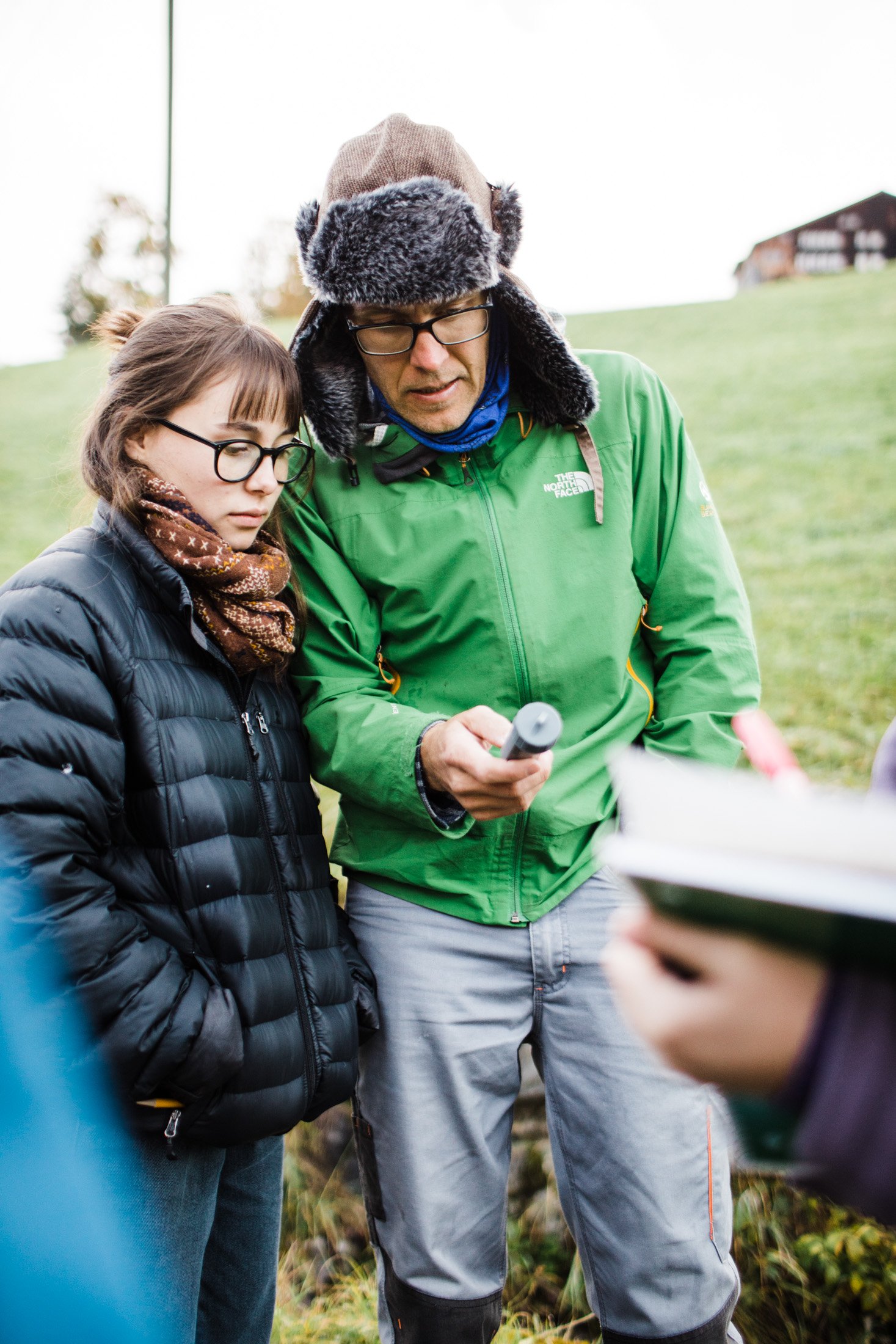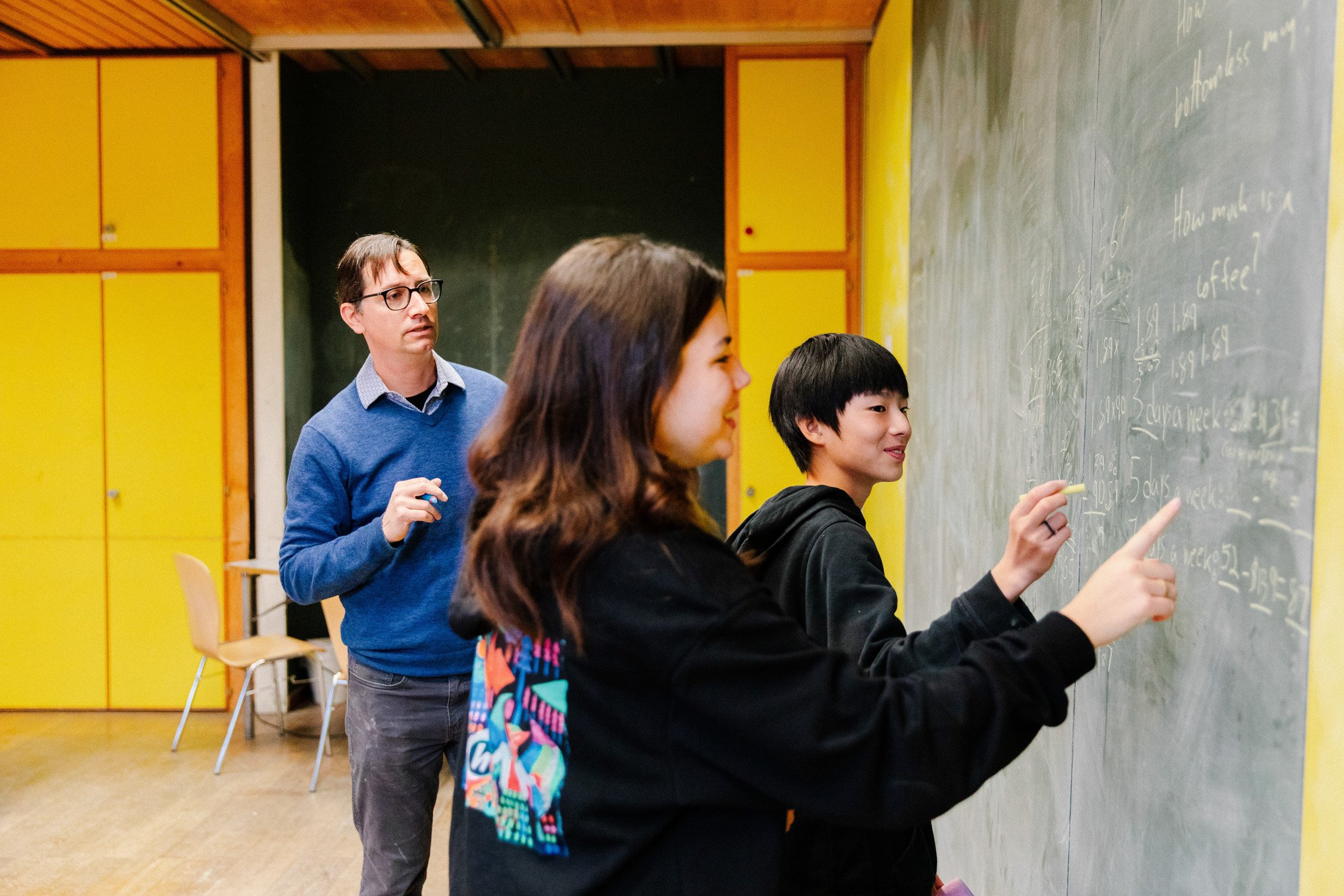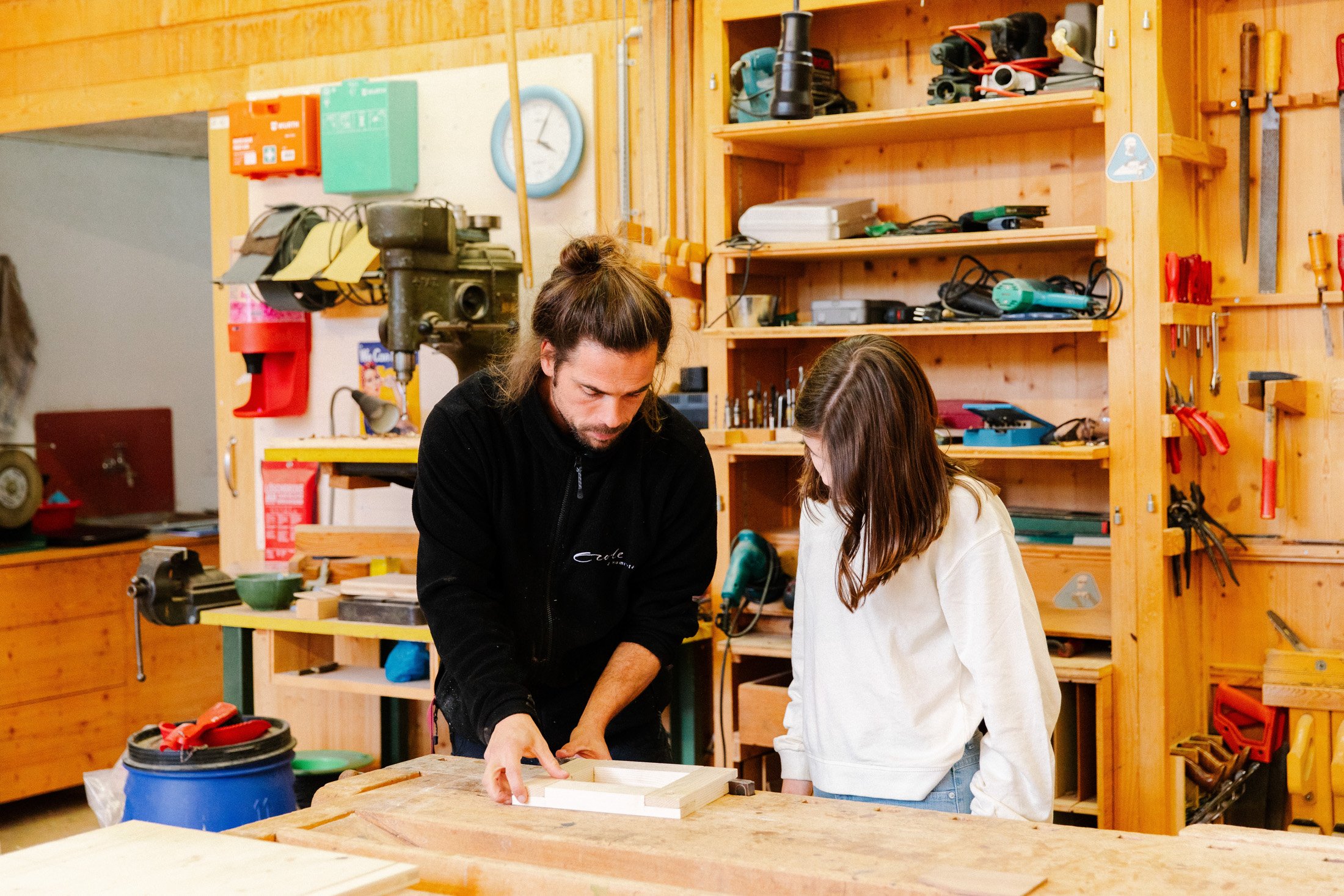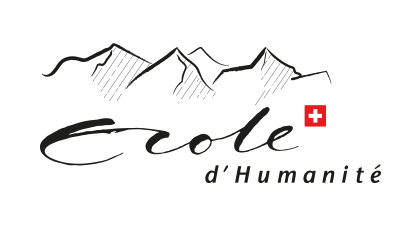
WHAT IS PROGRESSIVE EDUCATION?
Progressive Education at the Ecole d’Humanité
The Ecole d’Humanité’s innovative, progressive educational approach allows learners to thrive. We understand that learning happens best when students are given the freedom to follow their own passions, and our teaching method supports interest-based learning. In small classes, teachers respond to individuals’ strengths, abilities, and educational needs.
Small Class Sizes + Attentive Teachers
The Ecole d’Humanité has a teacher:student ratio of 1:5, and most classes at the Ecole are made up of about 6 students. Our small classes allow students to receive personalized attention as teachers tailor course content to the interests, abilities, and learning needs of each and every student. Smaller classes support deeper learning with more time for questions, debates, explorations and inspired divergences.
Teachers at the Ecole d’Humanité are always accessible to students outside the classroom. A student might check in with their academic advisor over lunch, meet their math teacher for support in the Learning Center, or even brainstorm ideas for thesis statements with their English teacher while on a hike.
Learning Driven by Passion
Learning happens best when students are intrinsically motivated. Our classes are structured like university seminars, organized around inquiry themes. In innovative classes like The Physics of Bridges, Science and Society, Identity and Belonging in English Literature, an engaging theme provides a framework for learning core content - from paragraph structure to principles in thermodynamics.
Students are encouraged to ask questions and follow their own curiosities as they immerse themselves in an academic subject.
From there, students explore areas of interest and develop essential skills like critical thinking, critical analysis, and the application of the scientific method. Along the way, our learners deepen foundational skills like essay writing, research skills, and presenting information to a target audience.

The Ecole’s innovative approach to education and its excellent and dedicated teachers taught me to think both critically and creatively. The Ecole also pushed me to take responsibility for my education. I left the Ecole not only with skills that allowed me to excel academically, but also with a joy in learning and an intense curiosity that has lasted to this day.
-Dr. Djahane Salehabadi, Chair of Environmental Governance, University of Freiburg
Meaningful Feedback
At the Ecole d’Humanité, learners are given deep, precise, and actionable feedback in narrative form rather than being assessed by traditional letter grades. Students meet regularly with teachers to discuss their academic progress and gain insights into their unique strengths and opportunities for growth. Feedback is individualized to each student's objectives, needs, and abilities, and is designed to help each person reach their fullest potential.
Feedback is multi-directional: teacher to student, student to teacher, and peer to peer. Students are guided to assess their own progress as part of our self-reflection process. They learn to give and receive constructive feedback from peers who are uniquely suited to provide insights into a classmate’s progress and contributions to the learning environment.
Tailor-Made Curriculum
Students at the Ecole d’Humanité are active participants in shaping their own course of study. Academic advisors guide students to make strategic choices in carving their own academic journeys, ensuring that each student’s intellectual curiosities, academic objectives, and learning needs are satisfied by their course plan.
As students mature academically, they have the opportunity to pursue independent study projects with the help of an advising teacher.
Read More About our Curriculum
Profound Immersion in Core Subjects
We believe in the power of deep learning. Students at the Ecole d’Humanité spend six mornings a week deeply immersed in three core academic subjects. Students typically complete a year’s work in a given subject in one or two trimesters. Thematic content builds cross-curricular connections and helps learners integrate prior knowledge, even as they meet all the same requirements of a more traditional college preparatory program.
Teaching Philosophy
Our Pedagogical Background

